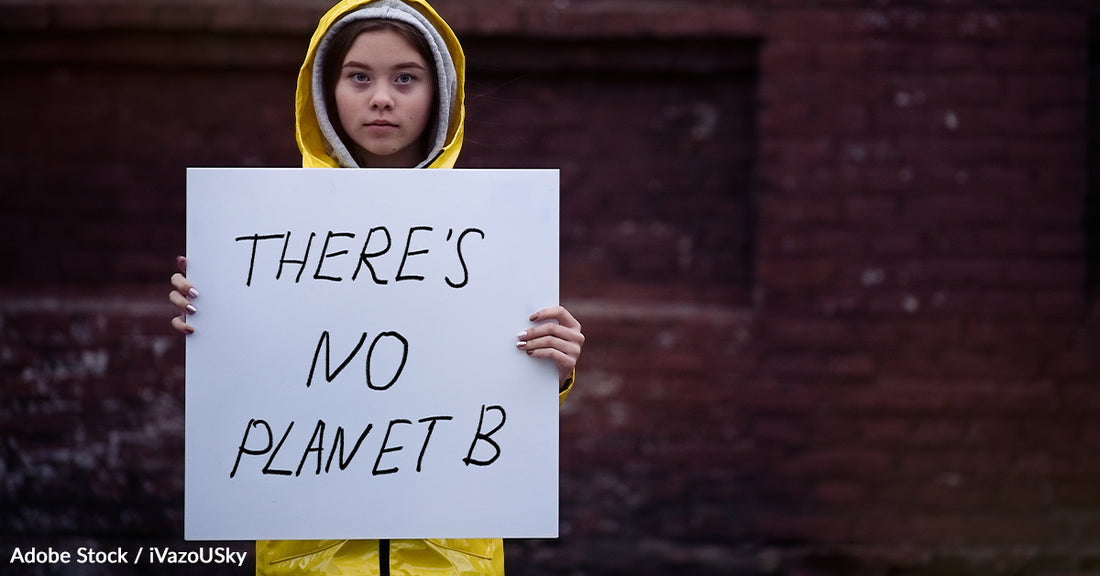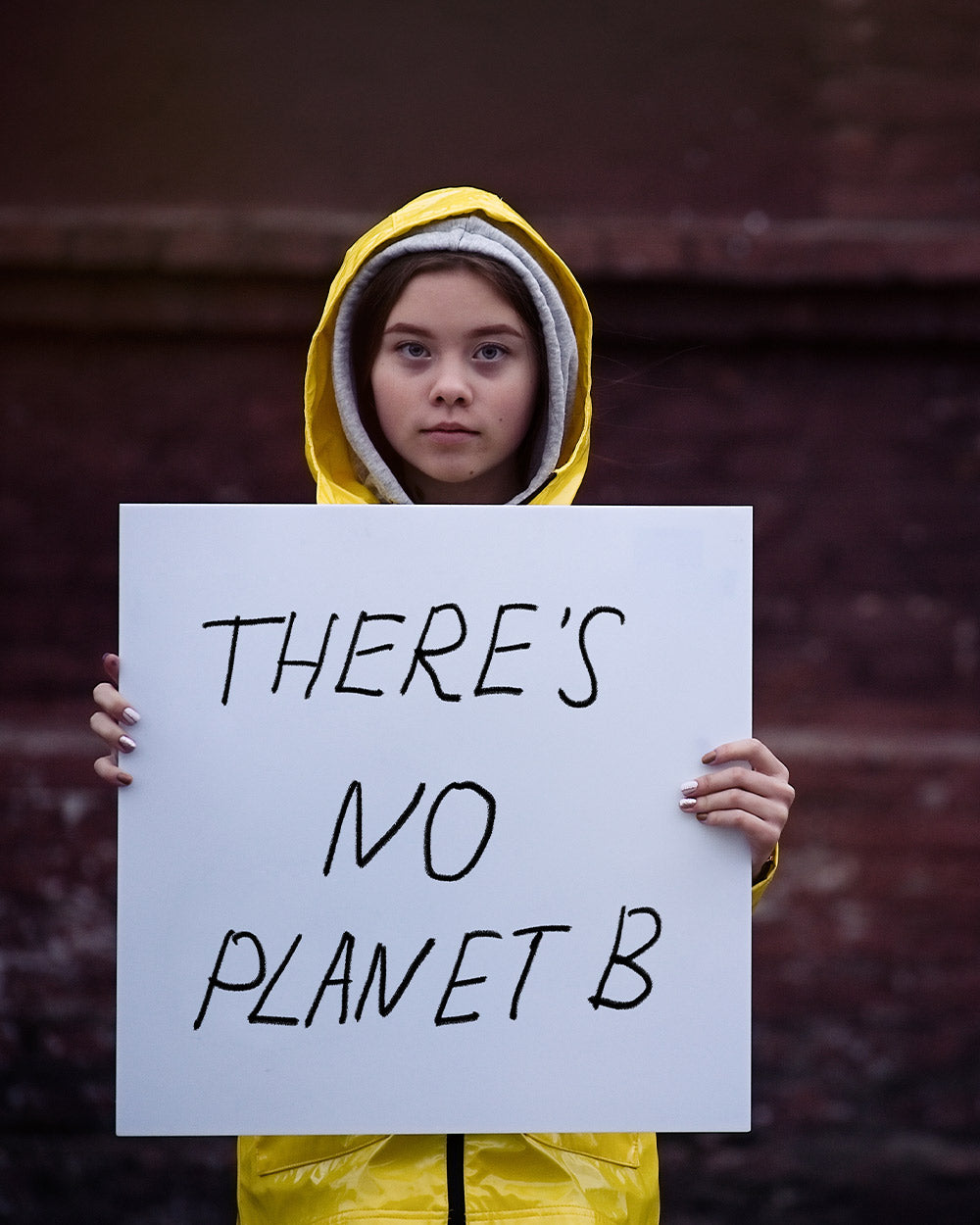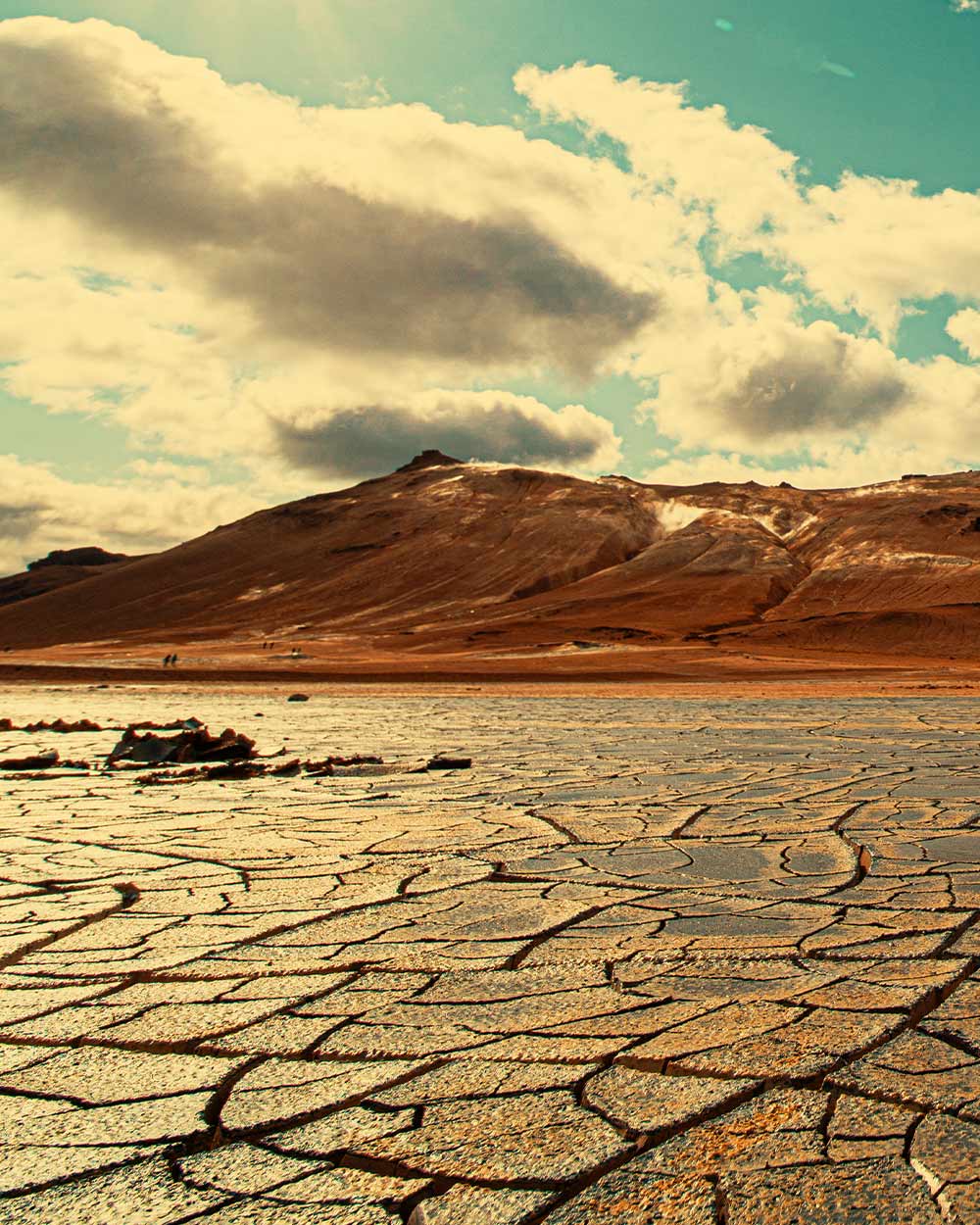New Report Shows We Will Hit Critical Threshold for Global Warming Within a Decade
Matthew Russell
Climate change is one of the greatest threats that humanity is facing today. The evidence for global warming is now irrefutable, and the consequences of our actions are becoming increasingly clear.
A new report by the Intergovernmental Panel on Climate Change (IPCC) warns that the planet is on track to cross a critical threshold for global warming within the next decade, which could have disastrous consequences for future generations, The Washington Post reports.
 Photo: Adobe Stock / Scott Book
Photo: Adobe Stock / Scott BookCrossing the critical threshold will result in more extreme weather events, such as heatwaves, droughts, and hurricanes, and sea levels will continue to rise, leading to flooding and the displacement of millions of people.
Climate change is caused by human activities, particularly the burning of fossil fuels like coal, oil, and gas, which releases carbon dioxide and other greenhouse gases into the atmosphere, CarbonBrief reports. These gases trap heat from the sun, causing the planet to warm up. The effects of global warming are already being felt around the world, with more frequent and intense heatwaves, droughts, wildfires, and extreme weather events. These events are not only damaging to the environment, but also to human health, agriculture, and infrastructure.
The IPCC report warns that global temperatures are estimated to rise 1.5 degrees Celsius above preindustrial levels sometime around “the first half of the 2030s.” This threshold is critical because it is widely considered to be the point beyond which the consequences of climate change become even more severe and irreversible.
 Adobe Stock / iVazoUSky
Adobe Stock / iVazoUSkyClimate change is one of the greatest threats to humanity, and evidence for global warming is now irrefutable.
If we continue to burn fossil fuels at the current rate, we could see temperatures rise by as much as 4 degrees Celsius by the end of the century. This would result in a world that is almost unrecognizable from the one we know today, with devastating consequences for future generations.
When Earth crosses the critical threshold, we can expect to see more extreme weather events. Scientific studies posit that heatwaves, droughts, and hurricanes will all increase in frequency.
- Sea levels will continue to rise, leading to flooding in coastal areas and the displacement of millions of people.
- The Arctic will continue to melt, causing a feedback loop that will accelerate warming even further.
- Biodiversity will suffer as ecosystems are destroyed by rising temperatures, leading to the extinction of many species.
These are just some of the many consequences of global warming, and they will affect not only the environment, but also the economy, human health, and social stability.
 Photo: Adobe Stock / luchschenF
Photo: Adobe Stock / luchschenFGlobal temperatures are estimated to rise 1.5 degrees Celsius above preindustrial levels around the first half of the 2030s, which is a critical threshold beyond which the consequences of climate change become even more severe and irreversible.
The threat of climate change is not just a problem for future generations. It is a problem that we must address today.
The IPCC report makes it clear that we need to make an immediate and drastic shift away from fossil fuels to prevent the planet from overheating dangerously beyond the critical threshold, Common Dreams reports. This will require global cooperation, billions of dollars, and big changes in our energy systems, transportation, agriculture, and lifestyles.
 Photo: Adobe Stock / Leonid
Photo: Adobe Stock / LeonidBurning fossil fuels releases greenhouse gases, causing the planet to warm up and resulting in more frequent and intense heatwaves, droughts, wildfires, and extreme weather events.
Backed by 195 member states, the IPCC maintains that the world's existing and planned fossil fuel infrastructure, including coal-fired power plants, oil wells, factories, cars, and trucks, will generate enough carbon dioxide to warm the planet by approximately 2℃ this century.
To avoid crossing this critical threshold, it is necessary to cancel, retire, or clean up many of these projects.
“The 1.5℃ limit is achievable, but it will take a quantum leap in climate action,” said António Guterres, the United Nations secretary general.
 Photo: Adobe Stock / iVazoUSky
Photo: Adobe Stock / iVazoUSkyIf we continue to burn fossil fuels at the current rate, we could see temperatures rise by as much as 4 degrees Celsius by the end of the century.
The distinction between a 1.5℃ and 2℃ rise in temperature could have severe consequences, Yale Climate Connections reports. The difference may result in tens of millions more individuals globally experiencing heat waves, water shortages, and coastal flooding that put their lives at risk.
In the U.S. alone, we could experience:
- Extended "Megadroughts" in western states
- Withering heat waves in the U.S. Pacific Northwest and British Columbia;
- Wildfires in Oregon, California, Montana, and others.
- Western wildfire smoke suffocating the residents of New York City, Philadelphia, Washington, D.C., and other parts of the eastern seaboard.
 Photo: Adobe Stock / yelantsevv
Photo: Adobe Stock / yelantsevvClimate change is increasing the frequency, severity, and duration of wildfires in many regions around the world. As temperatures rise and droughts become more common, the risk of wildfires igniting and spreading also increases.
Arctic sea ice may still exist, National Geographic reports but they will most likely disappear in a world with a 2℃ temperature rise.
“It’s not that if we go past 1.5℃ everything is lost,” Joeri Rogelj, director of research at the Grantham Institute for Climate Change and the Environment at Imperial College London told The New York Times.
“But there’s clear evidence that 1.5 is better than 1.6, which is better than 1.7, and so on. The point is we need to do everything we can to keep warming as low as possible.”
 Photo: Adobe Stock / toa555
Photo: Adobe Stock / toa555Wildfires themselves also contribute to climate change by releasing large amounts of carbon dioxide and other greenhouse gases into the atmosphere. This can create a feedback loop where more wildfires lead to more carbon emissions, which in turn contribute to further warming and more severe wildfires.
Despite the risks, there is reason for hope. The report also shows that it is still possible to hold global warming to relatively safe levels if we take action now. We have the technology and the resources to transition to a clean energy future, and many countries are already taking steps in the right direction. But we need to do more, and we need to do it quickly.
Climate change is one of the most pressing issues of our time. The threat of crossing the critical threshold for global warming within the next decade is a wake-up call for all of us.
We need to act now to prevent the worst consequences of global warming and to secure a sustainable future for ourselves and future generations. This will require unprecedented levels of global cooperation, investment, and action. But if we work together, we can create a world that is safer, healthier, and more prosperous for all.
Click below to make a difference.

